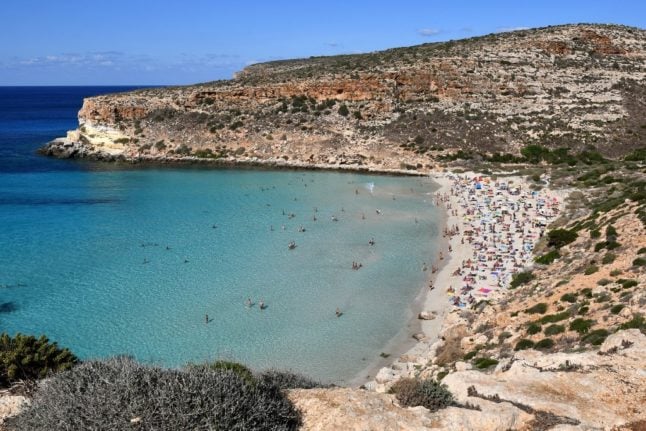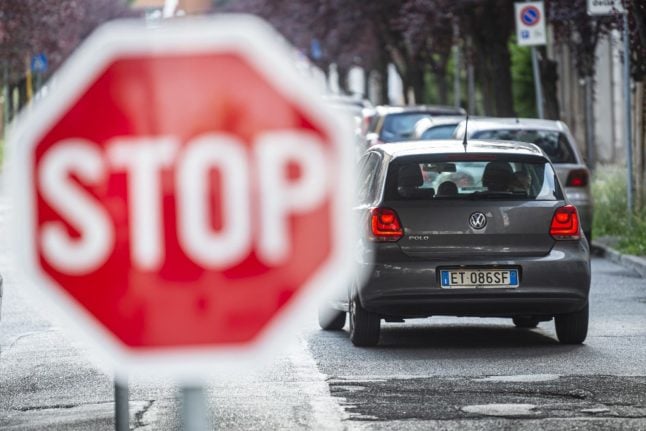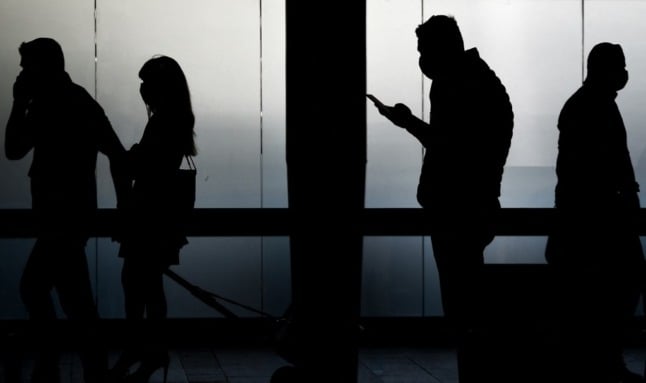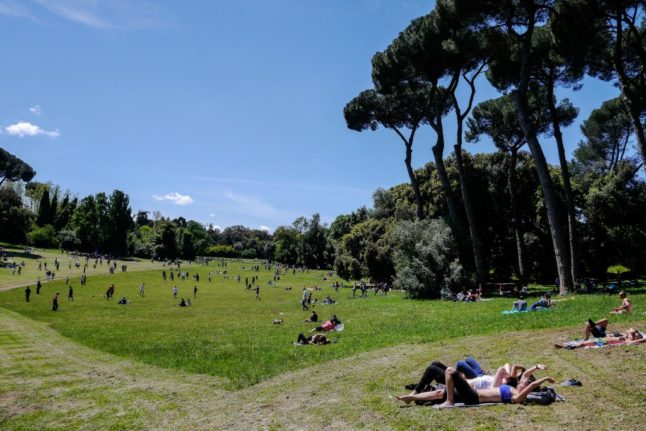British tourists can now return to Italy without needing to quarantine after the country on Friday scrapped restrictions in place since late 2020.
But, as well as pandemic-related travel rules, British travellers will need to be aware of other changes if their last visit was before the Brexit transition period ended (on January 1st 2021).
READ ALSO: What are the rules on driving between Italy and the UK right now?
While those who are just visiting are spared the Brexit bureaucracy faced by Italy’s British residents (such as with driving licences and residency cards) there are some things to keep in mind when planning a trip.
Passports
Your British passport of course remains a valid travel document, even if it no longer makes you a citizen of the EU. However, two things have changed.
Firstly, your passport now needs to have at least six months of validity left for travel into the EU.

Secondly your passport is likely to be stamped as you enter Italy, so that authorities can see clearly your date of entry.
The passports of Brits who are permanent residents in Italy should not be stamped but they will need to show proof of residency such as a carta di soggiorno, a receipt acknowledging the application for the carta di soggiorno or other paperwork that shows proof of residency – here’s what to do if your passport is stamped in error.
Visas
If you are entering Italy for a short holiday, visit to family or friends, or trip to a second home you do not need a visa.
However if you are moving to Italy to live or intending to stay longer than 90 days you will need either a visa or a residency permit. (find out about the visas available to Brits HERE).
If you’re coming to Italy to work, you may need both a visa and a work permit depending on the type and duration of your work.
Italy is thankfully not actually locking up Brits who don’t have the correct paperwork, unlike the Italian and other EU nationals detained in UK detention centres, but there are still checks and you may be turned back at the border if you try to enter Italy for a longer stay without the correct paperwork.
Extra paperwork
When entering Italy as a non-EU national you may now be asked to provide more documents at the border.
While enforcement varies, border guards have the right to request any of the following:
- Proof of accommodation during your stay (booking for hotel, Airbnb or B&B for tourists, second-home owners may need to provide proof of ownership)
- A return ticket or the means to acquire one
- Insurance that covers health costs and the cost of repatriation if required (see health cover section below)
- If you are transiting through Italy you may be asked for proof of your right to enter your final destination
Registering British guests on arrival
You may have seen reports that anyone who is hosting a British guest in their home has to register their presence with the Italian police.
This is true and, in fact, it’s not a new rule – it has long been in place for non-EU nationals entering Italy.
READ ALSO: Do you really need to register British visitors with the police in Italy?
“If you host a UK national (or any non-EU national) as a guest, you must inform your local immigration office (questura) within 48 hours after they arrive at your property. You could be fined if you fail to comply with this Italian immigration law,” the British government website states.
The UK government’s advice for British nationals living in Italy confirms that Brits now join Americans, Australians, and anyone else not from an EU member state or the Schengen travel zone in being legally required to declare their presence in Italy to the Italian authorities – even if they’re only here for a brief visit.
While the British government advises people living in Italy to register guests with the questura, there is some confusion about the rules as the Italian police website appears to say that it’s enough for arrivals to get a passport stamp at the Italian border.
The Local has requested clarification on the rules and the registration process from the British Embassy in Rome.
If you’re staying in a hotel, the registration procedure will be taken care of for you.
This rule applies for stays of under three months. Anyone who stays for longer than that must apply for a residence permit.
90-day rule
With the ending of freedom of movement comes the 90-day rule, which states that out of every 180 days, Brits can only spend 90 of them within the EU without a visa or residency permit.
You can find an explanation of how it works HERE, but essentially it limits trips into the Schengen zone to 90 days out of every 180. People who want to stay longer than 90 days in every 180 must apply for a visa (find out about the visas available to Brits HERE).
READER QUESTIONS:
- Can I stay more than 90 days in Italy due to travel restrictions?
- Can Britons living in EU spend more than 90 days in another Schengen country?
- Can Brits stay more than 90 days in the EU if they have a spouse with an EU passport?
You can find the Schengen calculator that allows you to work out our allowance here.
It’s worth pointing out that the 90-day limit applies to the whole EU and Schengen zone, not just Italy.
Health cover
In case you need healthcare while in Italy you will need either an EHIC or a GHIC health insurance card.
Be aware, however, that those only cover emergency care and do not include the cost of things like repatriation.
If you are travelling without a visa or residency card you may need to show proof that you have cover for repatriation costs, but this can be through either health insurance or travel insurance. There is no requirement for a separate health insurance policy to enter Italy.

Driving licences and car insurance
While British residents in Italy have been told they need to exchange their driving licences due to Brexit, there is better news for visitors – you can continue to drive on your UK or NI licence in Italy and there is no need for an International Drivers’ Permit.
Depending on your insurance provider, you may need to get a Green Card to drive in Italy, so check with your policy provider before travel.
Ham sandwiches and other British delicacies
There are now strict rules on what products you can bring into the EU from the UK, which rule out almost all animal products (meat, fish, dairy etc) as well as flowers and plants.
These restrictions are not due to customs tariffs, but come under what is known as sanitary and phytosanitary rules – measures that aim to protect humans, animals, and plants from diseases, pests, or contaminants.
As with most Brexit regulations, these are not new rules – it is just the first time that people or goods arriving from the UK have been affected by them.
Find the full list of banned items here.
Pets
It’s not just people who now face stricter travel rules: the European Pet Passport is no longer valid for UK-dwelling pets to travel into Italy.
Instead, you will need to see your vet ahead of your trip to get an Animal Health Certificate. Unlike the Pet Passport, a new AHC is required for every trip.
For all the latest information and updates from Italy, see our Travel or Brexit sections.



 Please whitelist us to continue reading.
Please whitelist us to continue reading.
Member comments